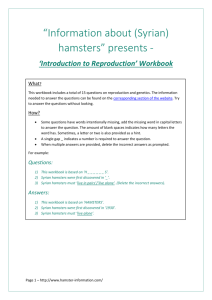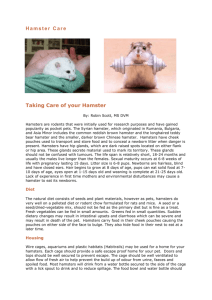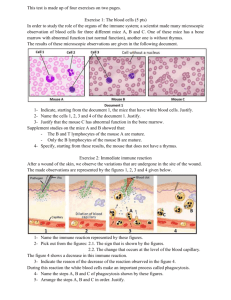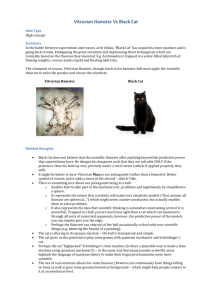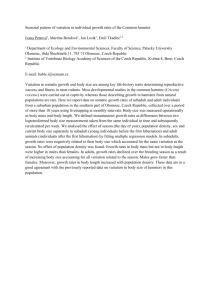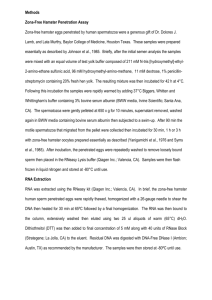Text for pet leaflet
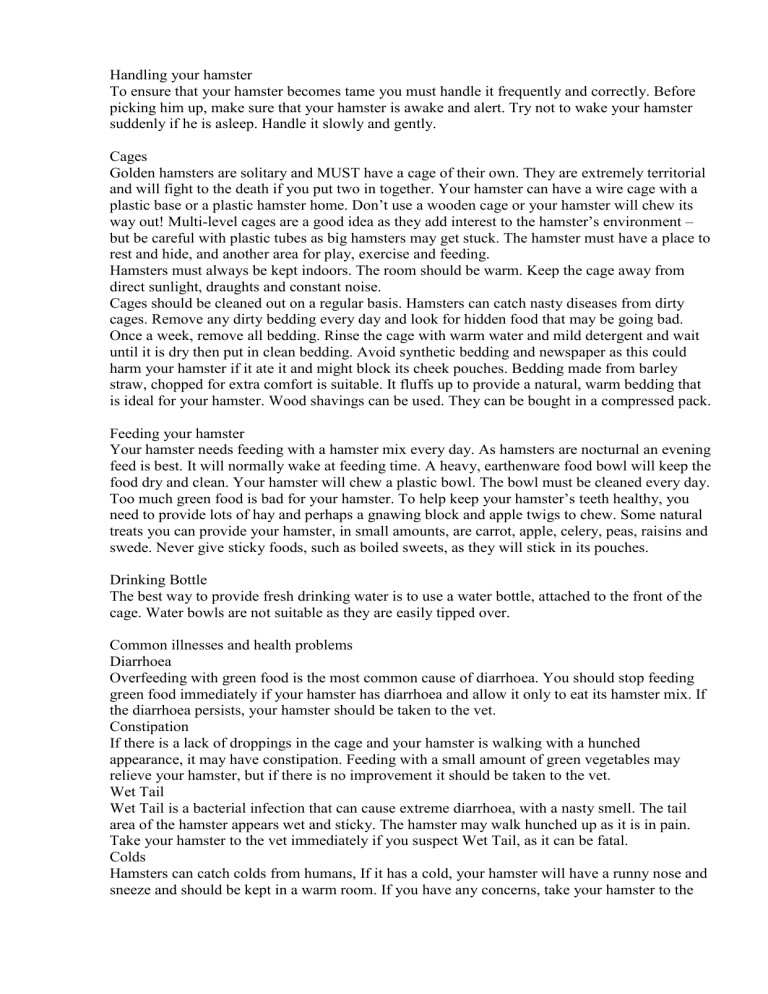
Handling your hamster
To ensure that your hamster becomes tame you must handle it frequently and correctly. Before picking him up, make sure that your hamster is awake and alert. Try not to wake your hamster suddenly if he is asleep. Handle it slowly and gently.
Cages
Golden hamsters are solitary and MUST have a cage of their own. They are extremely territorial and will fight to the death if you put two in together. Your hamster can have a wire cage with a plastic base or a plastic hamster home. Don’t use a wooden cage or your hamster will chew its way out! Multi-level cages are a good idea as they add interest to the hamster’s environment – but be careful with plastic tubes as big hamsters may get stuck. The hamster must have a place to rest and hide, and another area for play, exercise and feeding.
Hamsters must always be kept indoors. The room should be warm. Keep the cage away from direct sunlight, draughts and constant noise.
Cages should be cleaned out on a regular basis. Hamsters can catch nasty diseases from dirty cages. Remove any dirty bedding every day and look for hidden food that may be going bad.
Once a week, remove all bedding. Rinse the cage with warm water and mild detergent and wait until it is dry then put in clean bedding. Avoid synthetic bedding and newspaper as this could harm your hamster if it ate it and might block its cheek pouches. Bedding made from barley straw, chopped for extra comfort is suitable. It fluffs up to provide a natural, warm bedding that is ideal for your hamster. Wood shavings can be used. They can be bought in a compressed pack.
Feeding your hamster
Your hamster needs feeding with a hamster mix every day. As hamsters are nocturnal an evening feed is best. It will normally wake at feeding time. A heavy, earthenware food bowl will keep the food dry and clean. Your hamster will chew a plastic bowl. The bowl must be cleaned every day.
Too much green food is bad for your hamster. To help keep your hamster’s teeth healthy, you need to provide lots of hay and perhaps a gnawing block and apple twigs to chew. Some natural treats you can provide your hamster, in small amounts, are carrot, apple, celery, peas, raisins and swede. Never give sticky foods, such as boiled sweets, as they will stick in its pouches.
Drinking Bottle
The best way to provide fresh drinking water is to use a water bottle, attached to the front of the cage. Water bowls are not suitable as they are easily tipped over.
Common illnesses and health problems
Diarrhoea
Overfeeding with green food is the most common cause of diarrhoea. You should stop feeding green food immediately if your hamster has diarrhoea and allow it only to eat its hamster mix. If the diarrhoea persists, your hamster should be taken to the vet.
Constipation
If there is a lack of droppings in the cage and your hamster is walking with a hunched appearance, it may have constipation. Feeding with a small amount of green vegetables may relieve your hamster, but if there is no improvement it should be taken to the vet.
Wet Tail
Wet Tail is a bacterial infection that can cause extreme diarrhoea, with a nasty smell. The tail area of the hamster appears wet and sticky. The hamster may walk hunched up as it is in pain.
Take your hamster to the vet immediately if you suspect Wet Tail, as it can be fatal.
Colds
Hamsters can catch colds from humans, If it has a cold, your hamster will have a runny nose and sneeze and should be kept in a warm room. If you have any concerns, take your hamster to the
vet.
Overgrown teeth and nails
A hamster’s teeth grow throughout its life. It needs to be provided with hard material to gnaw.
Apple wood and dog biscuits encourage gnawing. Regular clipping of the teeth may be necessary; the vet will be able to do this for you. Nails can also become overgrown and should be trimmed by the vet to ensure your hamster is comfortable.
Exercise
It is important that your hamster has the opportunity to exercise every day. This helps keep it fit and stops it getting too fat.
If you want to provide a wheel for your hamster to play in, it must be big enough so that the hamster does not have to bend its back when it is inside, and must have a solid floor rather than rungs as these can cause injuries to the feet and tail.
Holidays
If you want to go on holiday, you must ensure that someone is happy to look after your pet properly whilst you are away.


